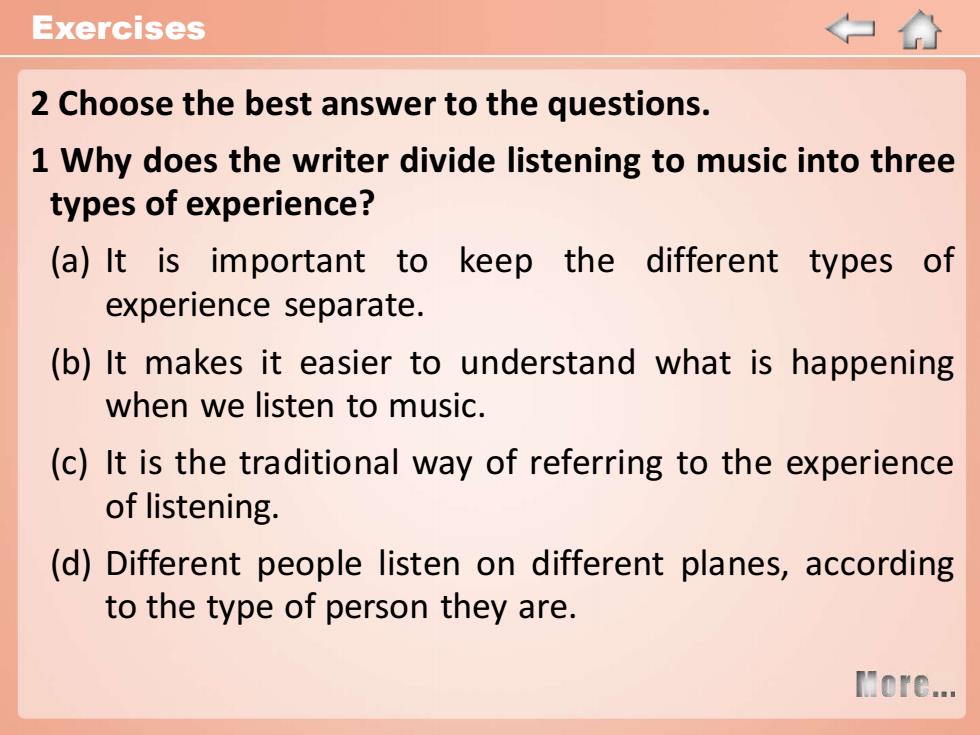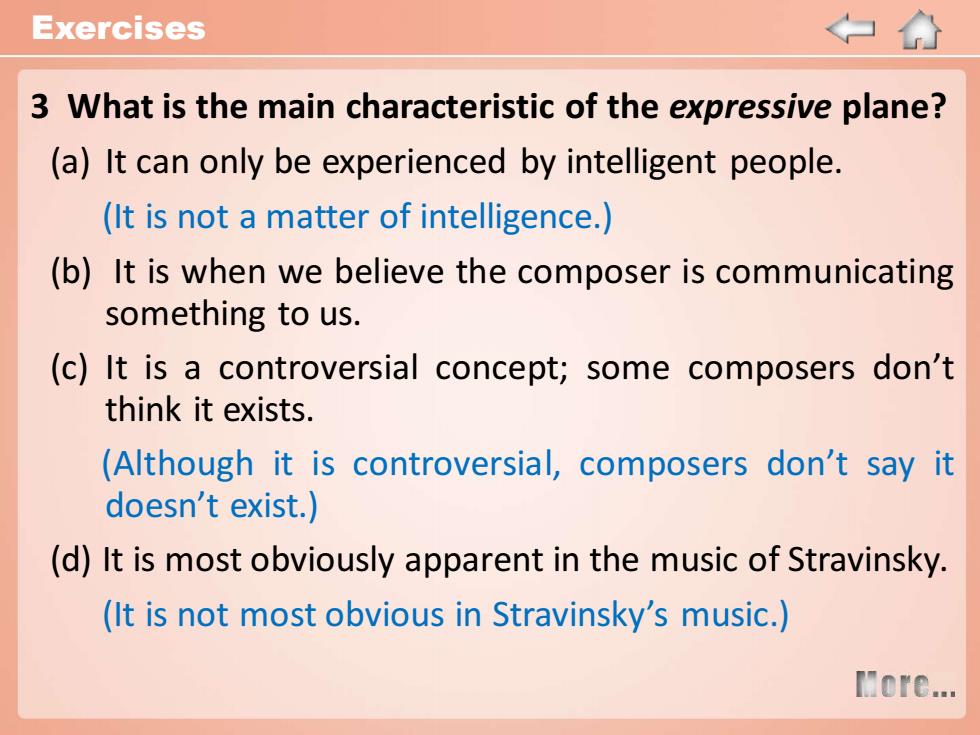
ExercisesReading and understandingDealing with unfamiliar wordsReading and interpretingDeveloping critical thinking
Reading and understanding Dealing with unfamiliar words Reading and interpreting Developing critical thinking Exercises

ExercisesReadingandunderstanding2Choosethebestanswertothequestions.3 Match the listeners'activities with the planes they areon
Reading and understanding 2 Choose the best answer to the questions. 3 Match the listeners’ activities with the planes they are on. Exercises

Exercises2Choosethebestanswertothe questions1 Why does the writer divide listening to music into threetypes ofexperience?(a) It is important to keep the different types ofexperience separate.(b) It makes it easier to understand what is happeningwhen we listen to music.(c) It is the traditional way of referring to the experienceoflistening(d) Different people listen on different planes, accordingtothe typeof persontheyare.More
2 Choose the best answer to the questions. 1 Why does the writer divide listening to music into three types of experience? (a) It is important to keep the different types of experience separate. (b) It makes it easier to understand what is happening when we listen to music. (c) It is the traditional way of referring to the experience of listening. (d) Different people listen on different planes, according to the type of person they are. Exercises

Exercises2 What is the main characteristic of the sensuous plane?(a) It isthe sort of feeling weget when listening to music onthe radio.(ltisnot confined totheradio.)(b) It canonlybe experienced by people who aren'tmusicians.(Itisnotonlyexperiencedbynon-musicians.)(c) It is a reaction we have which is generated by the sound ofthe music.(d) It does notgiveus any realsense of pleasure(lt does give us pleasure.)More
2 What is the main characteristic of the sensuous plane? (a) It is the sort of feeling we get when listening to music on the radio. (It is not confined to the radio.) (b) It can only be experienced by people who aren’tmusicians. (It is not only experienced by non-musicians.) (c) It is a reaction we have which is generated by the sound of the music. (d) It does not give us any realsense of pleasure. (It does give us pleasure.) Exercises

Exercises3 What is the main characteristic of the expressive plane?(a)Itcanonlybeexperiencedbyintelligentpeople(lt is not a matter of intelligence.)(b) It is when we believe the composer is communicatingsomething to us.(c) It is a controversial concept; some composers don'tthink it exists.(Although it is controversial, composers don't say itdoesn't exist.)(d)It ismost obviouslyapparent inthemusicof Stravinsky(ItisnotmostobviousinStravinsky'smusic.)More
3 What is the main characteristic of the expressive plane? (a) It can only be experienced by intelligent people. (It is not a matter of intelligence.) (b) It is when we believe the composer is communicating something to us. (c) It is a controversial concept; some composers don’t think it exists. (Although it is controversial, composers don’t say it doesn’t exist.) (d) It is most obviously apparent in the music of Stravinsky. (It is not most obvious in Stravinsky’s music.) Exercises